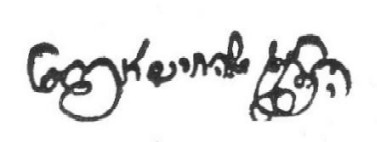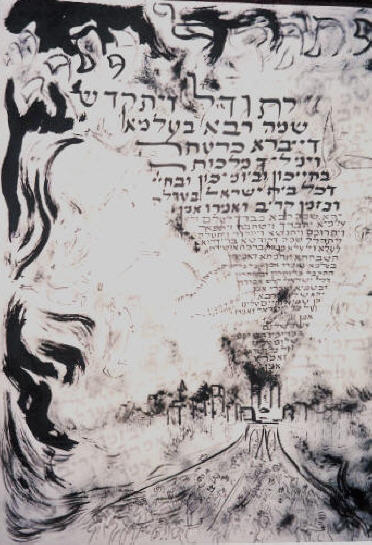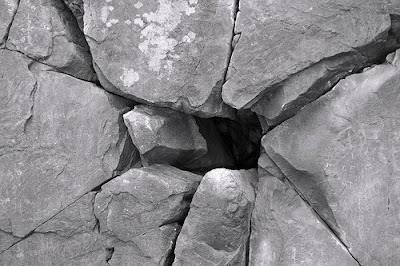
Excerpt from The Jewish Marriage Book: Improving Your Marriage One Jewish Holiday at a Time by Rabbi Shlomo Slatkin:With Rosh HaShana less than a week away, we often look for ways in which we can improve ourselves for the New Year. The list of options appears daunting. What is most important? What do we choose to work on? One of the most challenging areas to change is in the arena of interpersonal relationships. Even Yom Kippur does not atone for sins that occur in this realm unless we first make amends with the individual. Yet it is precisely in the difficulty of this work that lies its greatness; the transformative power that enables us to stand before Hashem on Rosh HaShana.
Every year before Rosh HaShana, we read Parshas Nitzavim (Devarim 29:9-10):
Atem nitzavim hayom, kulchem lifnei Hashem Elokeichem rosheichem shivteichem zikneichem v’shotreichem kol ish yisroel, etc… “You are standing today, all of you, before Hashem, your G-d: the heads of your tribes, your elders, and your officers- all the men of Israel; your small children, your women, and your proselyte who is in the midst of your camp, from the hewer of your wood to the drawer of your water, etc . . .” The Zohar comments that
hayom, ‘today’, refers to Rosh HaShana (See Ramaz on the Zohar II 32b). Rabbi Shneur Zalman of Liadi, the Baal HaTanya, explains (Likutei Torah, Nitzavim) that all of the souls of the Jewish people form one collective unit, a
koma shleimah. On Rosh HaShana, all of them ascend together and stand before Hashem, from the highest to the lowest. When we are able to gather together and unite as one, G-d can be proclaimed our King.
The Key to UnityHow do we achieve this unity? It is through the recognition and the attitude that every individual has qualities that we do not possess; those which we need to become more complete and whole. It is to view relationships from the paradigm of holiness, a circle. There is no hierarchy, no top or bottom. It is like the human body. While the feet may be the lowest part of the body and the head the top, the head needs the feet. The feet hold up the entire body and are necessary for walking. If one has a headache, performing bloodletting in the feet provides relief to the head. The head may be at the top but it is incomplete without the feet.
So too, the Jewish people are one body. You may think you are superior to your friend but you will surely find something in which you lack that he can complete. Approaching individuals through an attitude of humility and mutuality, allows for the dwelling of Hashem. Rosh HaShana is the quality of teshuva, return, when the collective of Jewish souls return to their source. This return can only occur when we rectify our interpersonal isolationist and separatist mentality.
What the Baal HaTanya is saying is that every interpersonal relationship is a growth experience; it is a way for us to become whole by receiving from the other that which we are missing. This is an incredible and inspiring idea, yet why do people often avoid working on their relationships? Why does growth in this area of our lives seem so difficult?
Receiving Through GivingIf we could become more complete people by merely learning and mimicking the good others have, it would be easy. What makes it so challenging is that this process requires an almost paradoxical interaction. We ‘receive’ what we are missing, not by taking, but by giving others what they most need from us. We become more complete because what they need from us is what is most difficult for us to give and vice a versa. Meeting their needs compels us to grow into parts of ourselves that we are not yet comfortable experiencing.
I see this dynamic all of the time with couples. For example, an extroverted wife who likes to get together with friends and socialize may want her husband to get out of the house a little more. An introverted husband may wish his wife would spend more quiet time at home. As their needs are on opposite ends of the spectrum, they are likely to butt heads. This is where conflict arises in relationships. Although they both wish to connect with each other, their way of connecting is very different. The answer lies in how we articulate our needs.
Learning How to TalkHow does a baby get his needs met? He cries. That is the only way he knows to communicate. He does not intend to inflict harm upon his parents, yet anyone who has heard a baby’s cry knows that it is not the most pleasant of sounds. In many ways, we are still babies. We act unconsciously and immature. We may not cry but we can yell, criticize, blame, and shame. How do we grow up? Through learning how to talk and ask for our needs in a safe and honorable way. We truly do not want to hurt each other. We want to get our needs met yet we know no other way. Through safe intentional dialogue we are able to ask for our needs, share our hurts, and have compassion for each other.
Instead of replaying the same fight over and over about how she wants to go out and how he would rather stay home, I have couples share their feelings in a structured dialogue where they can both listen to each other and also understand that there may be something deeper going on. Recurrent frustrations usually indicate that there is more than meets the eye. What feelings are being triggered for the woman when her husband will not go out with her? What other experiences does it remind her of? What is triggered in the husband when he is feeling pressure to do something he does not want to do? When couples, and anyone in a relationship, become more conscious about their needs, they can express them in a mature way, transforming conflict into connection. I find that when this happens, people want to step out of their comfort zone and give to the other, and thus grow.
We need each other. Let us realize that to become whole, and to stand before G-d on Rosh HaShana we must view our interpersonal relationships as a way to close the circuit of our incomplete selves. While it may be the hardest thing you do, there are effective tools that you can learn to grow and transform your relationships from conflict to connection.
























 (Painting by Yefim Rudminsky)
(Painting by Yefim Rudminsky)




















